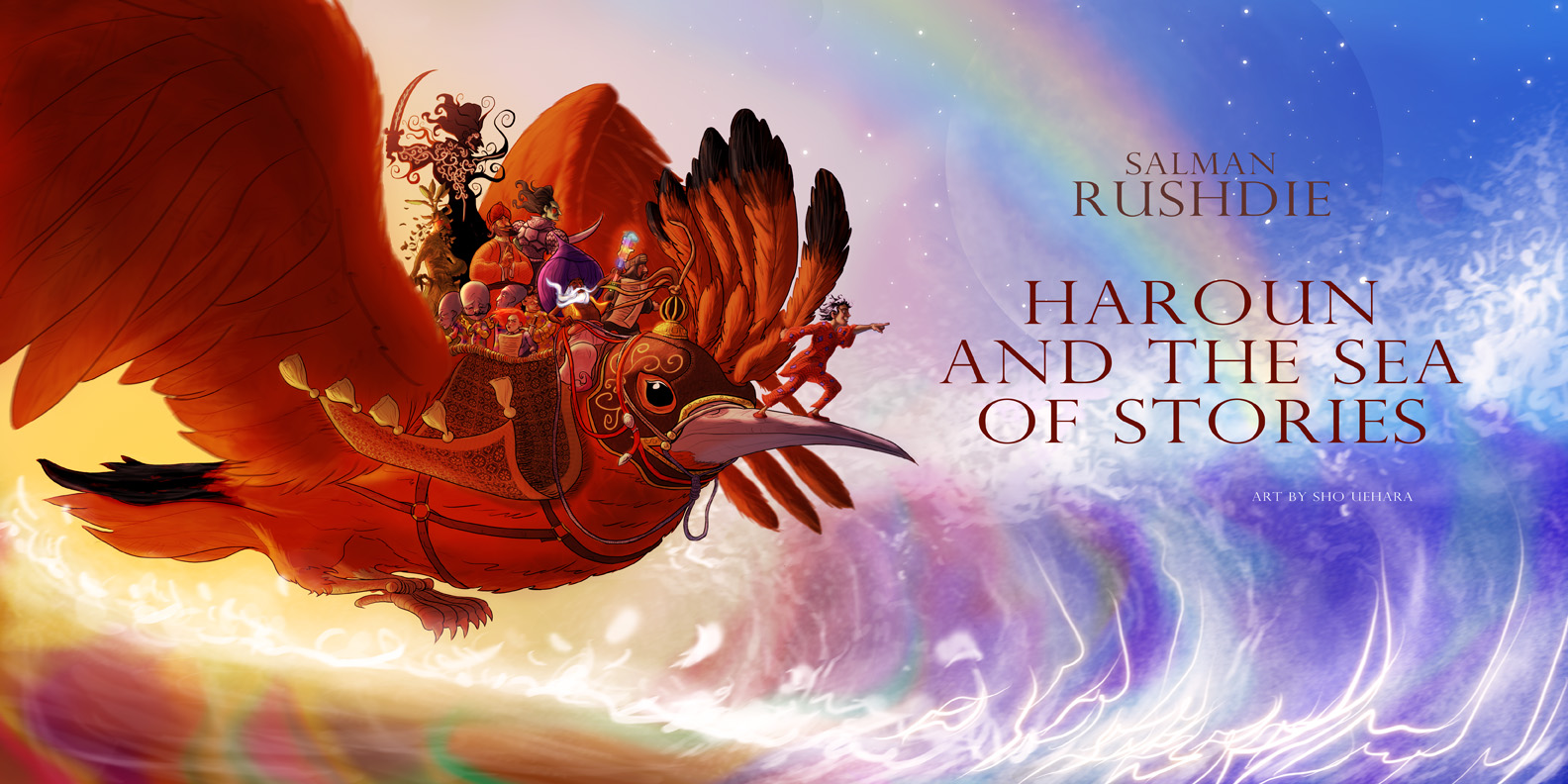I do not usually write book reviews, unless of course, it is an important assignment or something. But here is a book review I wrote recently for umnotablogger, a Bangladeshi e-magazine managed by a group of extremely young, talented and energetic Internet bloggers who have accepted me into their team gladly. Hope all my readers will enjoy this review and also the book itself!
————————————————-

“There’s more to you, young Haroun Khalifa, than meets the blinking eye.”
Well, what was that supposed to mean? “We used up our full quota of child-stuff in making you,” Rashid explained. “It’s all packed in there, enough for maybe four-five kiddies. Yes, sir, more to you than the blinking eye can see.”
Forget all the controversies surrounding Salman Rushdie. Forget that he has a death warrant on his head from an Iranian Ayatollah (these are real deadly dictator-mullahs I tell you). Forget that he has been living underground for ages for fear of getting murdered. Forget that he is an apostate who loves attention from all quarters.
Forget all this and all thou book-lovers will truly be able to appreciate Salman Rushdie. One of the most talented writers of the English language, Salman Rushdie’s style of writing is any would-be novelist’s dream. There is no denying that this man is perhaps the most celebrated writers of our era of contemporary fiction. His Booker Prize-winning novel, ‘Midnight’s Children’, has been adjudged as the ‘Booker of all Bookers’ in the first 25 years of the award’s history. The subtle blend of humor, sarcasm, pun and the pugnacious imagination that he employs throughout his masterpieces entrance readers of all ages from all generations. And Haroun and the Sea of Stories, standing true to its Salman Rushdie-nature, is another creation par excellence.
Strongly reminiscent of the never-aging tales of the Arabian Nights, Haroun and the Sea of Stories is any storyteller’s fantasy. And this time it’s the Sea of Stories that captivates the reader. Rushdie’s penchant for storytelling is doubtlessly uncanny—something for which he has always been dawned as a revolutionary writer in the world of fiction— but what mesmerizes me about the novel, as a reader, is the ease with which the story unfolds. The language takes you back in time; back to your childhood when you used to read all those didactic tales and repertoires of love, deceit, adventure etc etc etc that taught you about morality and installed your values. But here in this simple storyline, lies one of the greatest virtues of fiction—a moving, heart-warming story. Everything in this book is a direct product of the writers’ imagination; far away from most other works of contemporary fiction. But the magical realism in the tale makes you somehow addicted to it. It is not the story itself that attracts the reader but the Rushdie-style pun, humor and imagination. After reading it, for some time, most other novels will seem totally bland to you. Such is the power of Rushdie’s masterful prose.
Rainwater dripped onto the note from Haroun’s hair. “What to do son,” Rashid pleaded piteously. “Storytelling is the only work I know.”
When he heard his father sounding so pathetic, Haroun lost his temper and shouted: “What’s the point of it? What’s the use of stories that aren’t even true?”
Unlike all those reviews over the Internet which destroy the reader’s interest in turning the pages of the books reviewed, I will dissent by refraining from spilling much of the beans from the book. But since I do know that you want to know whether the story is of your type or not, I will say something about the plot.
Haroun is the son of Rashid Khalifa, a famed storyteller in a weird land where the names of the cities are all in alphabets (weird eh?). So this one day, when it is raining beautifully across the barren city, Haroun comes back home from school to find his father crying—-his mother had just eloped with their neighbor after finding her husband’s storytelling profession tiresome, bitter and taunting. And from that moment of loss onwards, Rashid Khalifa, the most amazing storyteller in the world, loses his art of storytelling all of a sudden. He is unable to fashion out absolutely any story from his inherent sea of stories. And when the young Haroun Khalifa questions him about this out of the blue incompetence, he replies enigmatically that his Sea of Stories is not being replenished by the Water Genie.
Thus the young Haroun makes a journey to Kahani, the land of stories in order to request the authorities to start supplanting his father’s sea of stories. And hence weaves a great tale of adventure and devotion, and most spectacularly: imagination. But now I will stop right here with the plot. Read the entire book to find out the adventures of Haroun. I am sure you will like it!
“My fault again,” Haroun thought wretchedly. “I started all this off. What’s the use of stories that aren’t even true. I asked that question and it broke my father’s heart. So it’s up to me to put things right. Something has to be done.”
The only trouble was, he couldn’t think of a single thing.
————————————————————————————————